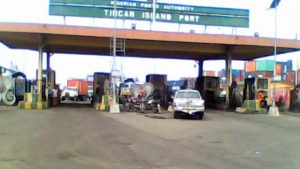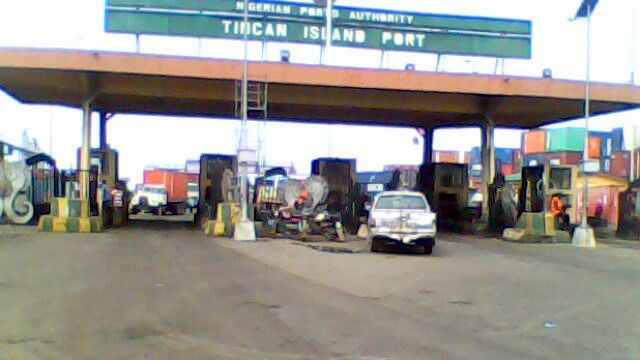The Nigerian Ports Authority (NPA) has said that Tin Can Island port is collapsing, saying that more attention should be focused more on rehabilitating the quay walls of the port.
Speaking over the weekend, the Managing Director of NPA, Mr. Mohammed Bello-Koko, said that the agency had taken a holistic review of the decaying parts of the ports.

He added that the agency had started discussing with some lending agencies, stressing that the agency did not have intentions to borrow.
Bello-Koko said that the introduction of the Infrastructure Concession Regulatory Commission Act meant that the renewal of the concession agreements for terminal operators was no longer done the way it used to be done.
He said: “Tin-Can Island Port is practically collapsing. We need to focus our budget on the rehabilitation of those quay walls at the Tin-Can port. We have taken a holistic review of decaying infrastructures at our ports and have decided that it is very important that we rehabilitate Tin-Can and Apapa port.
“What we have done is to start talking to lending agencies, even though we don’t intend to lend. We are asking how much money they will invest in the port terminals.”
He said his agency was asking those whose leases had expired how much they would be investing in the ports.
The NPA boss also said that before the agency would renew the concession agreement of some terminal operators, there must be an agreement on the development of the ports.
“For us to renew these concession agreements that have expired, about five of them, we need to have a categorical commitment from the affected terminal operators on the development of these port terminals. If the terminal operators cannot give us such commitment, then we either give the terminals to someone else or go and borrow money to rehabilitate those ports.”
He, however, said that the affected terminals would not want the agency to rehabilitate the ports.
“However, if we go and borrow money to rehabilitate those ports, then what the terminal operators are paying will have to change. The rates will have to go up. If we don’t do that, these terminal operators will keep managing those places, and the ports will keep collapsing. Because of their financial interest, these terminal operators don’t want us to re-construct the affected port terminals because that will mean stopping them from operating.
“We have had interest from the World Bank, amongst others. Surprisingly, it was the World Bank that actually gave money to the NPA to construct part of Apapa port so many years ago. The World Bank has come again to tell us that if we need funding, they will give it to us.”
He also revealed that five terminal operators were being monitored to ensure they did the right things regarding their commitment and obligations as agreed under the Port Concession agreement.
Bello-Koko also disclosed that the affected terminal operators had been given temporary six-month renewal with conditions to meet before they would have their concession agreement renewed permanently.
“At the point of expiration of any concession agreement, the then Legal Agreement says that the terminal operators can apply for renewal and we will renew. It was after the concession agreement that the ICRC Act came onboard. The ICRC Act requires that there should be a new owner, a new bid, and so on and so forth.”


